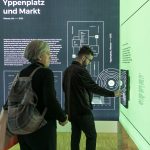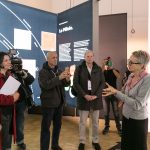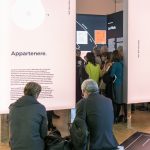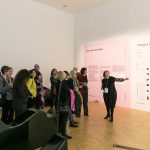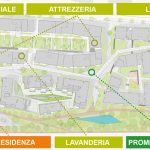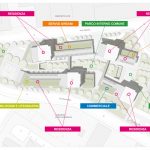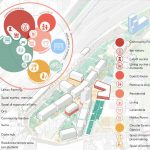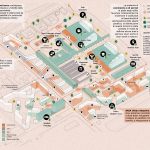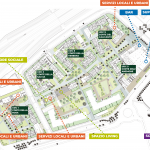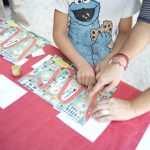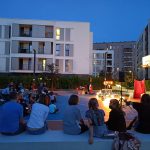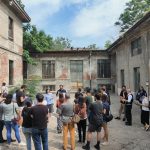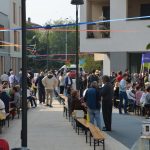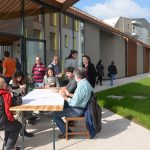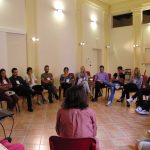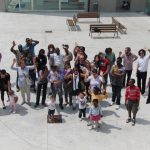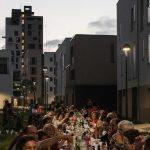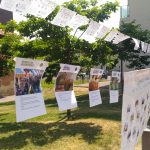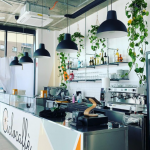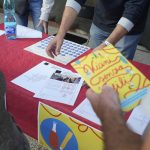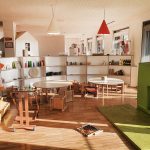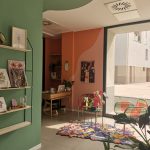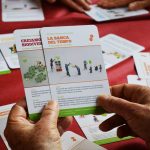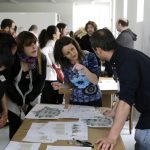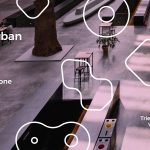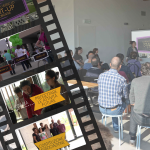NEW URBAN BODY: ARCHITECTURAL AND HOUSING CONCEPTS
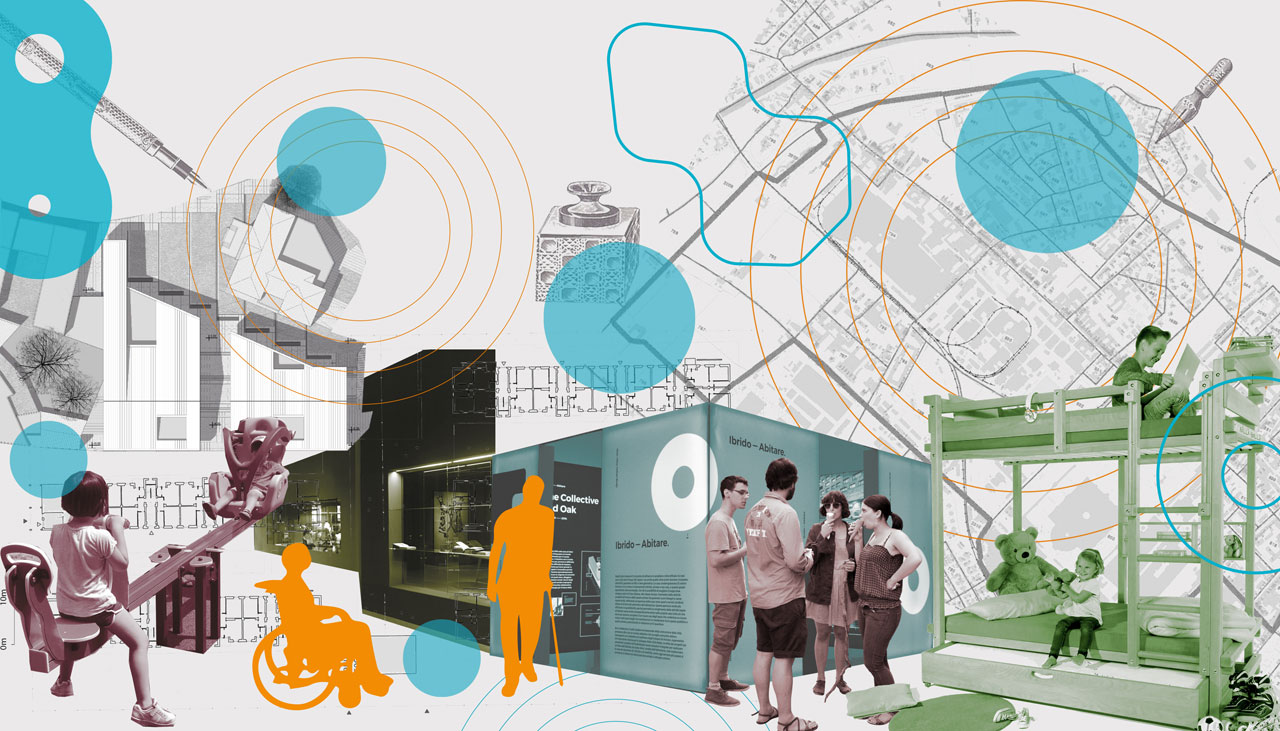
In 2017, FHS curated the exhibition New Urban Body – experiences of Urban Generation. The exhibition was held at the Triennale di Milano, the OGR of Turin, inside the Palermo edition of Manifesta, and in other exhibition spaces in Rome, Genoa, Perugia, and Modena.
The exhibition illustrated how the evolution in our ways of living, of working, of meeting each other, and of using facilities and services has a strong impact on the transformation of the city. Evolution in our way of living relates to the increasingly widespread tendency we have of living time, space, and ownership in a fluid and strategic way, when compared with our daily commitments.
The exhibition was designed to stimulate discussion with public authorities and the main local actors about current and effective ways of constructing cities. Is it possible to “create cities” by following a project that is hybrid, plural, fluid, and adaptive? Who are the new activators of urban processes? What triggers the supply chain of an urban project?
New Urban Body was an exhibition that, in many ways, foresaw many of the issues that were then consolidated with the advent of the pandemic, in particular the idea of the city of proximity, otherwise known as the 15-minute city. The research conducted for the exhibition provided FHS with a summary of the experience gained up to that point in time, and with guidance for future activities connected with urban regeneration and new housing services.
ARCHITECTURAL AND RESIDENTIAL TYPOLOGIES
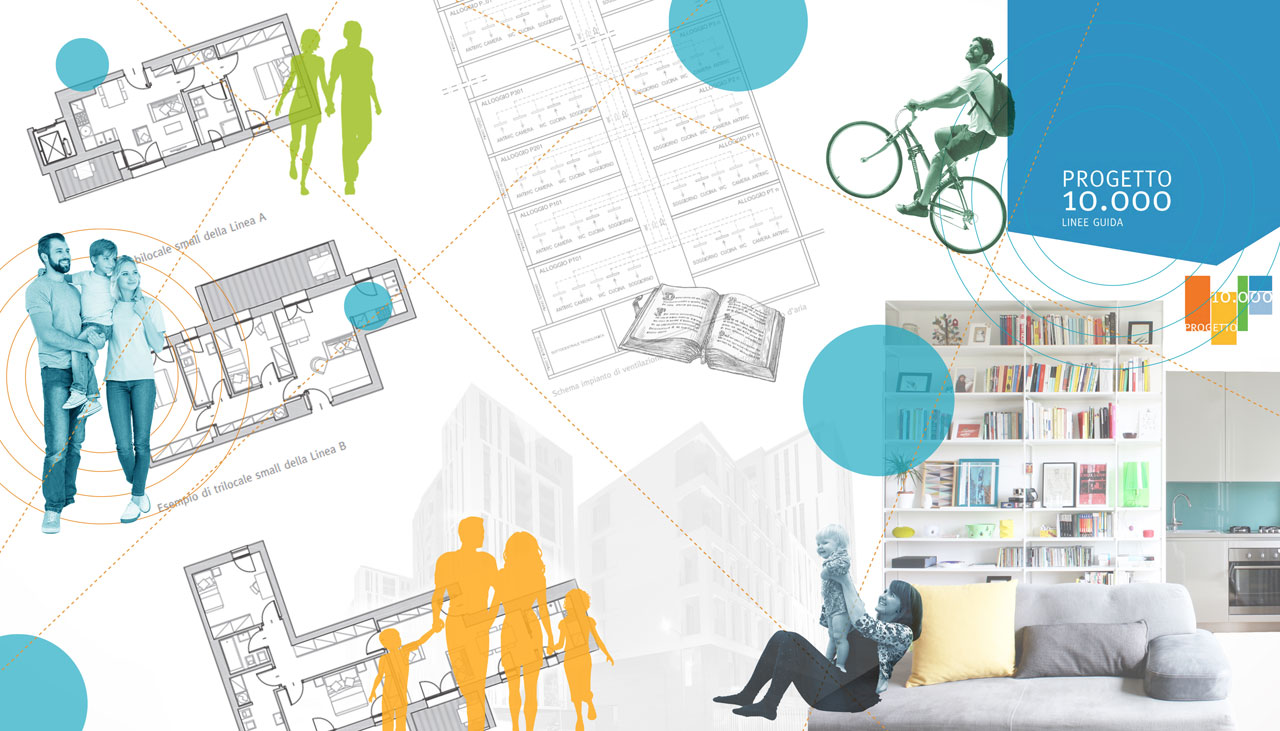
Since 2004, FHS has been active in the field of social housing and has become a living lab of housing prototypes, aimed at the study and experimentation of many different types of housing.
Thanks to its experience in the field and the knowledge acquired within its interventions, FHS has become a reference center for architects and promoters. FHS’s mission is not only to improve residential spaces through focused design, but also to bring evolution in the types of housing that are designated to accommodate specific target users, such as self-sufficient seniors, young people, and self-employed professionals.
The FHS concept has been developed and implemented by operators in the sector who have the experience and ability to assign apartments and manage them over time. The main housing projects conceived by FHS are: The Foyer at Cenni di Cambiamento, co-residence and co-living Moneta; the Casa Bottega , Senior co-housing and the project Grace – Borgo Assistito inside Figino Borgo Sostenibile; and the project Albergo Sociale Diffuso across several areas of the city of Milan.

BEI TIPI
FHS and CRESME (the Center for Economic, Sociological and Market Research in Construction) have together set up Bei Tipi, a center of competence aimed at identifying the best parameters to enhance living spaces, based on specific targets and needs.
Download the flyer »

PROJECT 10,000
CDP Investimenti SGR, in collaboration with Investire SGR and Fondazione Housing Sociale, promoted and financed a research and development project entitled Progetto 10,000, which was tasked with identifying and disseminating design models and construction systems aimed at optimizing the ex novo implementation of social housing interventions. For further information, please see the Tools section.
Activities undertaken by FHS:
- preparation of the concept-plan for the intervention: urban analysis and architectural feasibility, analysis of services, community profile, regulatory and administrative assistance, and in-depth analysis of housing models and typological proposals appropriate to the request
- demand analysis and supply planning: preliminary analysis of demographic trends, the potential catchment area of the project and the possible presence of housing problems; rough survey of rental and reference prices and analysis of the absorption capacity of the local market, and definition of the mix of typologies to offer
- definition of project guidelines and preliminary architectural design: architectural design support, preliminary architectural design, and architectural design of innovative residential models designated to specific target users
- preparation of contests: organization and planning of contests relating to design or ideas.
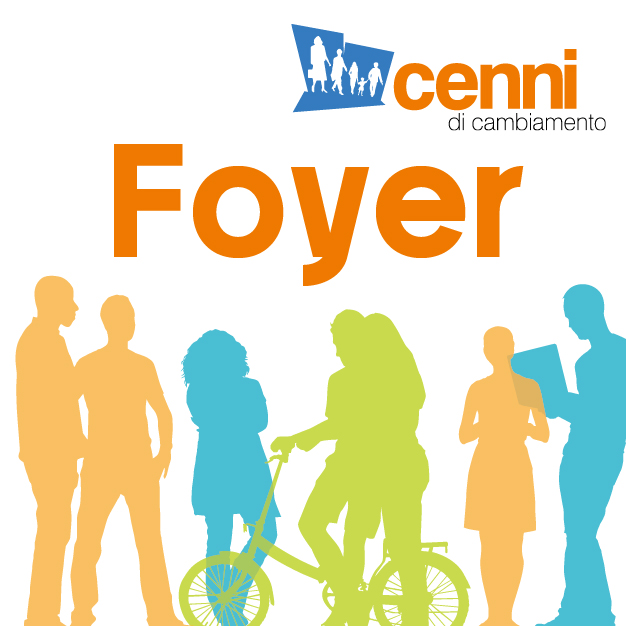
Foyer
The foyer is an international and European accommodation model that offers young people a temporary housing solution that is shared and affordable. The foyer project of Cenni di Cambiamento was conceived by Fondazione Housing Sociale and structured and managed by DAR=Casa. Please see the Cenni di Cambiamento project information for further details.
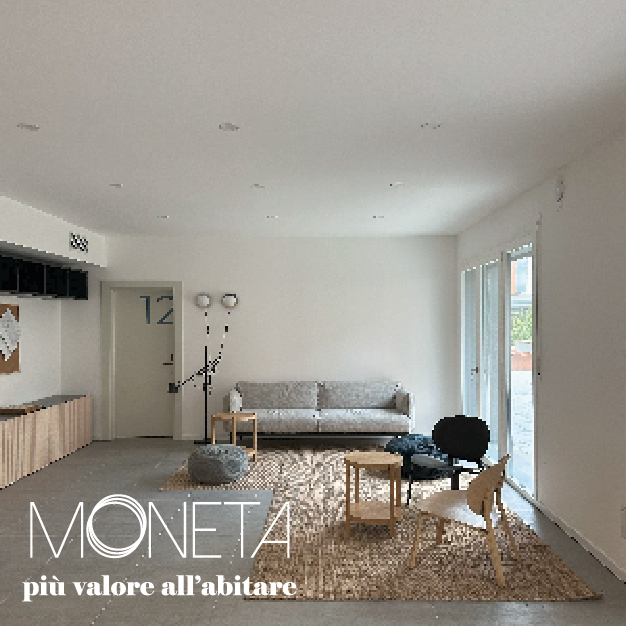
CO-RESIDENCE AND CO-LIVING
As part of the Moneta project, two new housing typologies based on the sharing of spaces and services were trialled: co-residences, which can accommodate up to 12 guests, and co-living. Co-living consists of a large residential unit that can accommodate over 30 guests, comprising independent private spaces that are clustered around shared spaces. Those who choose life in co-living units can therefore share everyday living spaces, such as the living room and the kitchen, while maintaining a dimension of privacy and intimacy.
CONCEPT PLAN AND INTERVENTION DESIGN
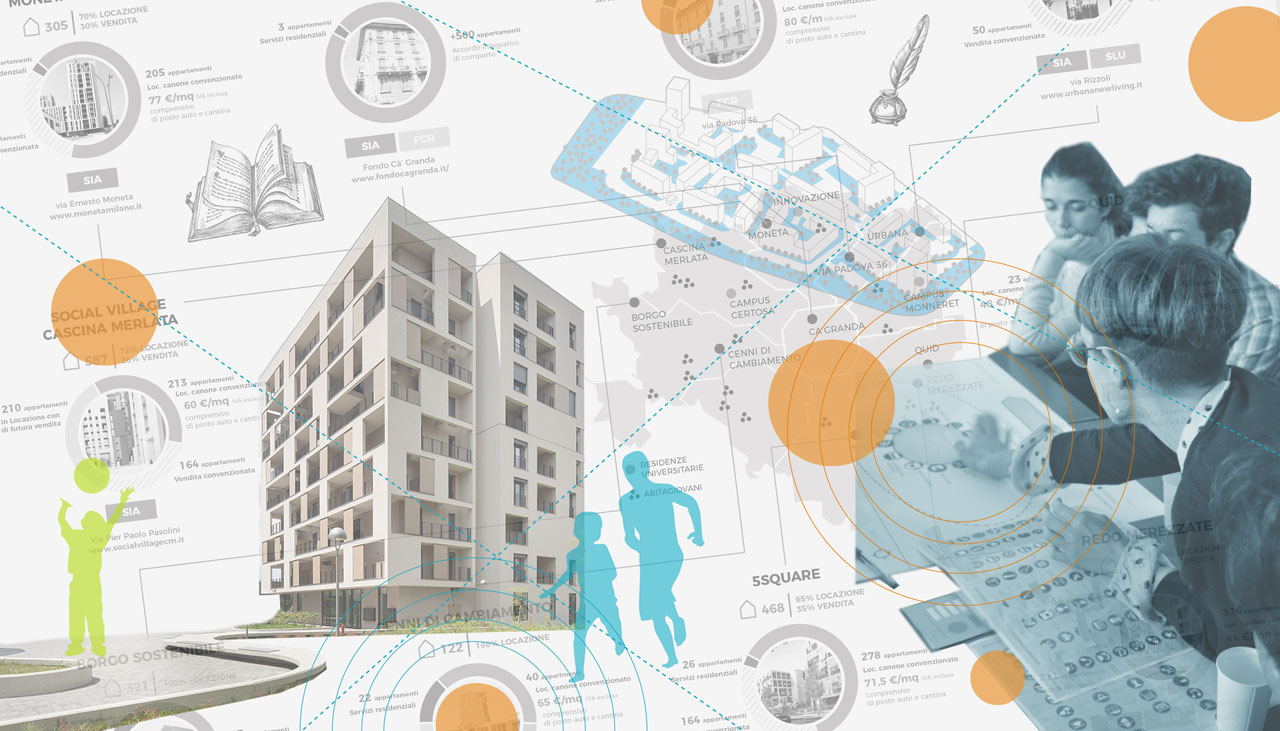
A social housing project aims to develop various project dimensions in an integrated way, coordinating real estate, architectural, and urban aspects with social, economic/financial, and management aspects, and bringing together numerous operators with quite distinct skill sets and languages.
The concept plan is the reference design vision that guides the different stakeholders involved in design, in real-estate development, and in project management, to develop the different parts of the project in a coordinated way, identifying the essential contents necessary to ensure feasibility on all levels, including technical, economic, and social.
The definition of the concept plan and of the main social content serves to structure projects of technical and economic feasibility.
Activities undertaken by FHS:
- demand analysis and supply planning: preliminary analysis of demographic trends, the potential catchment area of the project, and the possible presence of housing problems; rough survey of rental and reference prices and analysis of the absorption capacity of the local market, and definition of the mix of typologies to offer
- drafting of the project concept plan: analysis of urban and architectural feasibility, analysis of services, analysis of the safety and protection of public space, community profile, regulatory and administrative assistance, in-depth study of housing models and typology proposals appropriate to the request, definition of master plans with particular attention paid to volumetric composition and to the design of open space and ground floors and the quality of use of these, in order to define protected, safe and vibrant spaces
- drafting of Preliminary Design Documents and design guidelinesaimed at defining the contents of design contests and of projects relating to urban regeneration and social housing interventions that pay attention to the quality of the use of space, to its vibrancy and “social success”, and to designing common spaces that are useful to the life of the community, and services and residential spaces that can enhance the quality and richness of contemporary living
- preliminary architectural design: architectural design support, preliminary architectural design, and architectural design of residential models and innovative housing services destined to specific target users
- preparation of contests: organization and planning of contests relating to design or ideas
- support, collaboration and co-design activities for public authorities and public and private entities
- participation in requests for funding.
PLACEMAKING/URBAN REGENERATION
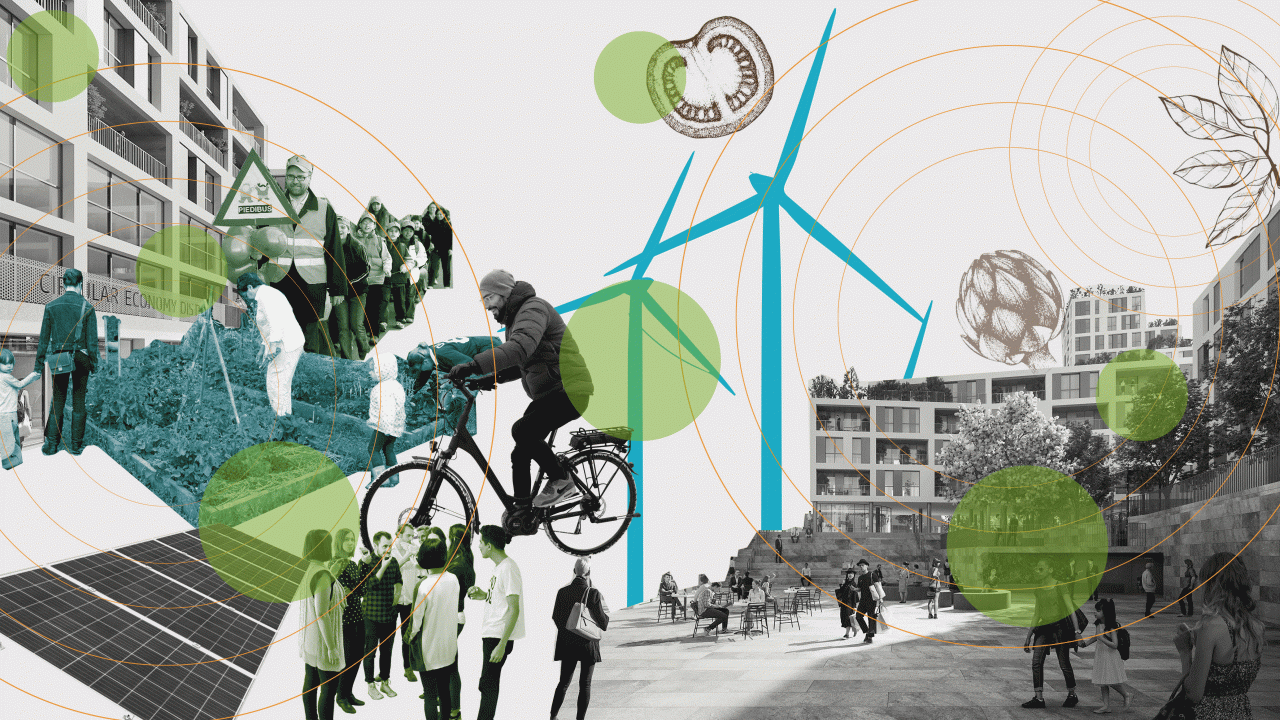
How is it possible to activate a new neighborhood? How can a new intervention be integrated into the existing reality? How can you help people to understand the character of the new project?
These are some of the questions that placemaking strategies can answer. Placemaking is an approach to urban design that involves the realities and communities that will be the end-users of these places. The objective is the construction of a “place” through the creation, over time, of a shared physical, cultural and social identity.
The activation of this type of process is increasingly used to support the development of new territorial interventions, before, during, and after implementation. The choice to focus on urban development activities right from the early stages of the project is, in fact, intended to facilitate the integration of the new intervention into the urban context in which it will be placed, thus avoiding it being perceived and experienced as being dissociated from the surrounding territory. The main objective of the activities that accompany the implementation of the new interventions is, in fact, that of laying the foundations for the construction of the future identity of the place, and to act as an incubator for a series of innovative activities and services which will subsequently be incorporated into the new neighborhood.
Activities undertaken by FHS
- development of master plan solutionsrelating to the relationship between territory, security and services
- social design on both a neighborhood and intervention scale
- support in the development of a network that includes local stakeholders and active players in the local area
- activities to enhance the community and the project
- monitoring of project objectives.
COMMUNITY ENGAGEMENT
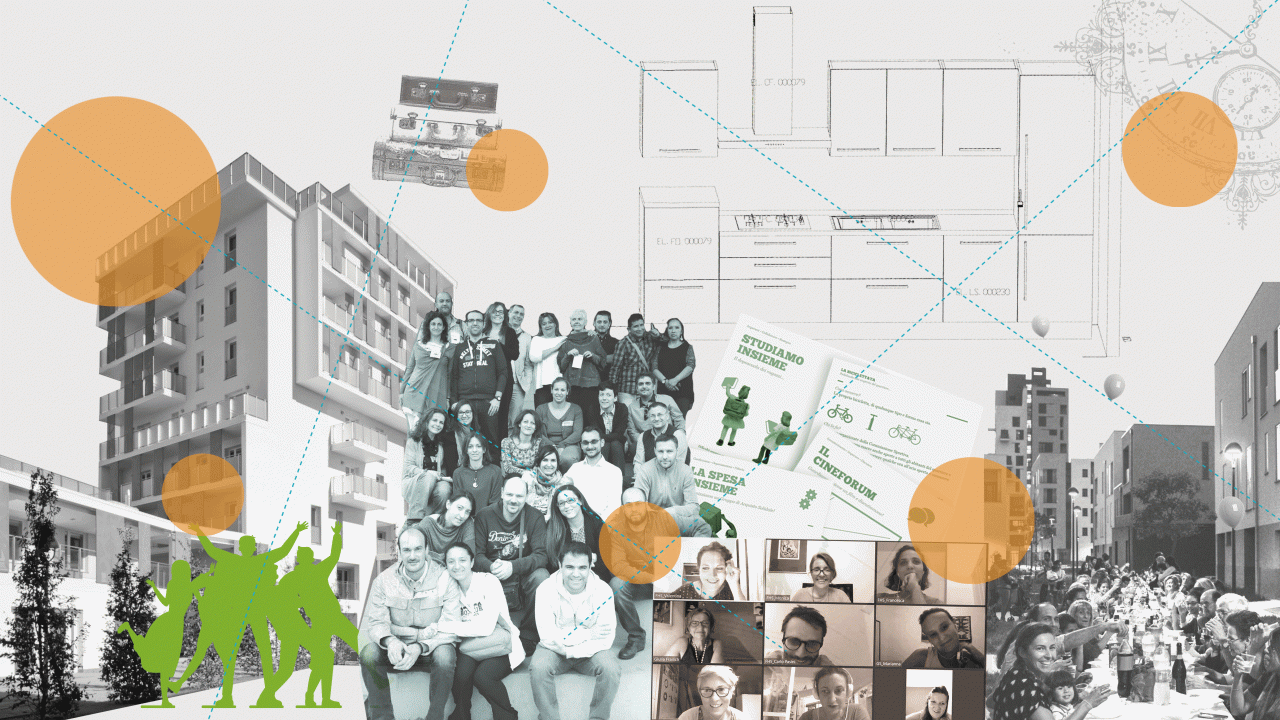
The Community Start-up Process, designed by FHS, aims to enable residents to design and manage collaborative initiatives and services which are of interest to the local community. The design methodology adopted by FHS favors co-design and promotes the use and management of common spaces, which always feature in the interventions. This pathway is the result of a process of design refinement and experimentation that, over the course of 15 years, has involved more than 13 social housing interventions, developed throughout Italy, via the Integrated System of Funds (Sistema Integrato dei Fondi, SIF). Service design plays a fundamental role in the design of this process, in the creation of co-design tools, in the definition of guidelines for visualizing the entire pathway, and in the scalability and replicability of the pathway itself.
The Start-Up pathway has been used by FHS in the following projects: 5Square, REDO Merezzate Milano, Moneta, Quid Quintiliano District, Urbana New Living, Cenni di Cambiamento, Figino Borgo Sostenibile, Cascina Merlata, and CasaCrema.
The Tools section contains details of the key tools used in community engagement activities. In addition, further details can be found in the section Commerce on demand.
Activities undertaken by FHS:
- creation and planning of the social support program
- design and running of the selection and design meetings for collaborative activities
- design and implementation of tools
- concept generationof collaborative services and activities
- training of the facilitators involved in meetings
- evaluation of the progress of the program.
In the context of social housing projects, FHS carries out specific activities relating to the allocation phase which, for interventions involving new construction, include:
- indication of the community profile
- definition of criteria for the allocation of the dwellings
- monitoring and active management of the functioning of the community and of the activities of the Social Manager
- monitoring the functioning of the community and of the services
- identification of any corrective measures or adjustments required.
In interventions involving the refurbishment of a building that is already inhabited, as in the cases of Via Padova 36 and Fondo Ca’ Granda, FHS undertakes specific activities relating to the mobility phase, including:
- creating a profile of resident tenants
- evaluation of portfolio division in relation to current tenants
- definition of detailed mobility plans, implementation, coordination, and monitoring of the mobility plan
- supporting the social manager in the implementation of the mobility process.
COMMERCE AND SERVICES ON DEMAND
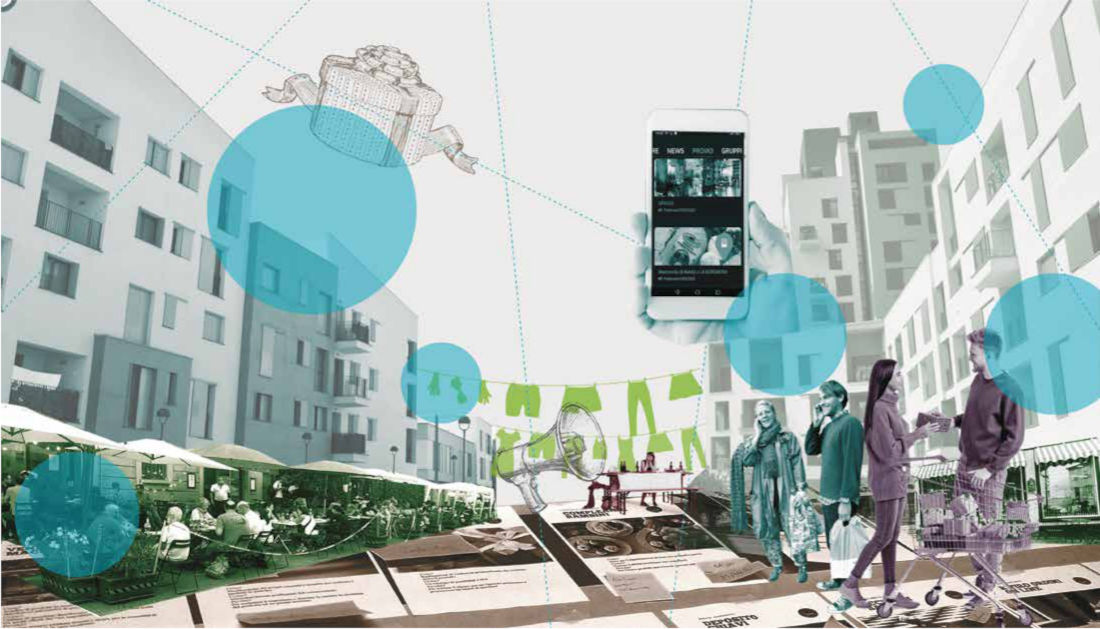
Neighborhood commerce is seen as a service that is aimed at building urban proximity centers, an engine of development and an element of cohesion and recognition not only for residents, but also for visitors and external users. Inside Social Housing interventions, the presence of service spaces and commercial premises promotes the idea of a vibrant and inhabited city at different times of the day. A survey of the local area is used to collect applications for entrepreneurial projects, which are then evaluated and selected according to the type of activity, the characteristics of the intervention, its capacity to respond to the needs of the neighborhood, and the profile of the applicant. The managers of proximity or supra-residential services thus identified often have hybrid and innovative characteristics, indicate a commitment to the ethical supply chain, and have a strong consideration of the context they operate in. Placemaking activities (Placemaking) and support for entrepreneurial activities also contribute towards strengthening the role of urban centrality.
This is an always-on project that is continuously evolving. At the moment, the most significant experiences created to date are within the Milanese social housing contexts of FIL1 and 2 are: Cenni di Cambiamento, Borgo Sostenibile , Cosenz, Urbana New Living, REDO Merezzate, and 5SQUARE.
Activities undertaken by FHS:
- definition of a concept plan that will act as the reference point to put together a cluster of services and commercial activities that meet the unexpressed needs or possibilities of the context concerned
- structuring the selection process of possible operators
- support in the start-up of entrepreneurial activities of various kinds (such as a pharmacy, a photographic studio, a delicatessen, or a bookshop), which are often hybrid spaces in which different activities can coexist
- co-design of services, activities and events, aimed at triggering synergies with the local context
- design and activation of strategies for placemaking and transient uses specific to each context (Placemaking/Urban Regeneration)
For further information: commercio@fhs.it
SERVICE DESIGN AND HOUSING WELFARE
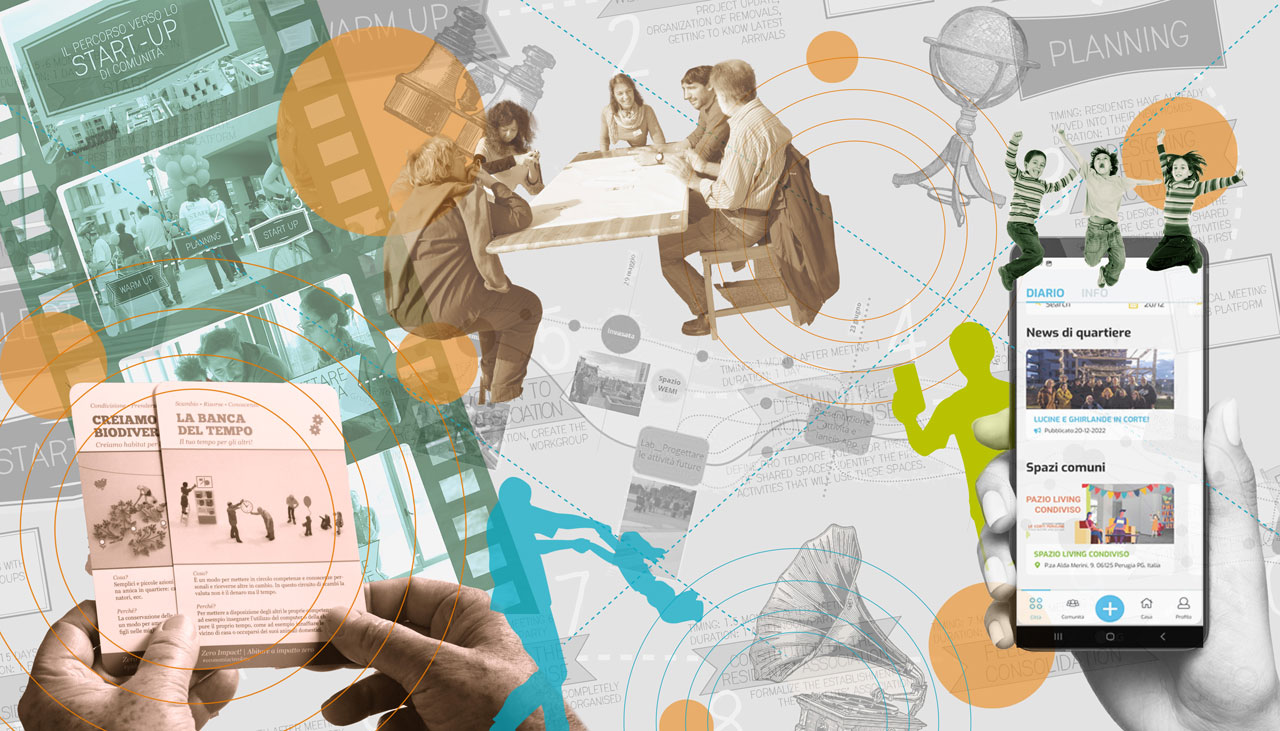
The initiatives promoted by FHS include the design of spaces for collective use and services, both inside and outside the building. The objectives are to meet the needs of the residents, to ensure the integration of the new community of residents into the local neighborhood, and to enhance the public space in the proximity of the intervention. Fondazione Housing Sociale’s contribution consists of facilitating the residents in the design of services and activities, by providing them with tried and tested tool kits and procedures, and studying the issues that their projects may pose.
The Tools section brings together the tools the Foundation has created for the design of services, including: an app that integrates content and tools to help manage the common spaces of the social housing intervention, and that offers a series of smart solutions which enable residents to get the most out of their neighborhood, and the “Social Cards” which are used to stimulate discussion and facilitate the choice of activities that the tenants then design and create together.
Activities undertaken by FHS:
- executive design of local urban services: service design, identification oflocal urban service providers, co-design of services, and business plans for services.
- executive design of additional housing services: design of the support pathway for the co-design of services, Toolkit for residents (including technological tools for sharing), and Start-up of services.
For further information, see the section Community Engagement, in which the Community Start-up Process is described.
MONITORING AND SOCIAL IMPACT
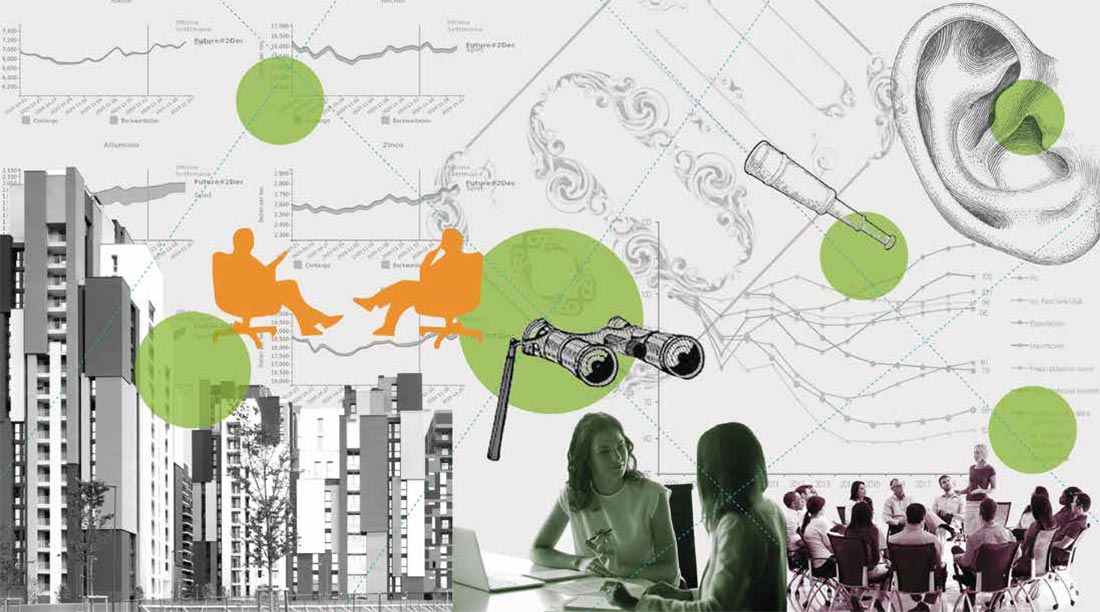
Fondazione Housing Sociale (“FHS”), as part of its activities to promote the sector and in its role of Technical and Social Advisor to the funds of the Sistema Integrato dei Fondi (“SIF”), has devised an integrated system for assessing the social performance of the interventions.
The evaluation system consists of four different analysis tools – some managed directly by FHS, others in collaboration with external partners – which join together to monitor the achievement of objectives and to measure the social value that is generated: active monitoring, network analysis, social impact analysis, and social rating.
Active monitoring is carried out by FHS under the terms of the Technical and Social Advisory contracts with the SIF Funds. It is performed with desk and field surveys on an annual basis, aiming to monitor the effectiveness of management processes, highlighting both initiatives that generate social value and critical issues, with the purpose of reorienting strategies.
Analysis of the support networks, or network analysis, is carried out by FHS in collaboration with Socialis Impresa Sociale in certain interventions of the Fondo Immobiliare di Lombardia (“FIL”), with the purpose of measuring the generative capacity of relational assets for the residents.
Social impact analysis is carried out in collaboration with the Evaluation Lab of Fondazione Social Venture Giordano Dell’Amore, with the purpose of understanding whether and how the social housing interventions generate changes in the living conditions of their residents (through counterfactual analysis). To date, this analysis has been initiated for several FIL projects.
Social rating, which was developed in collaboration with Avanzi S.P.A. SB and implemented independently of SB, aims to measure the ability of the interventions to respond, over time, to the needs of housing demand (access to housing and housing welfare), and to financially reward the SGR managing the Funds in the case of a positive outcome.
SENIOR LIVING
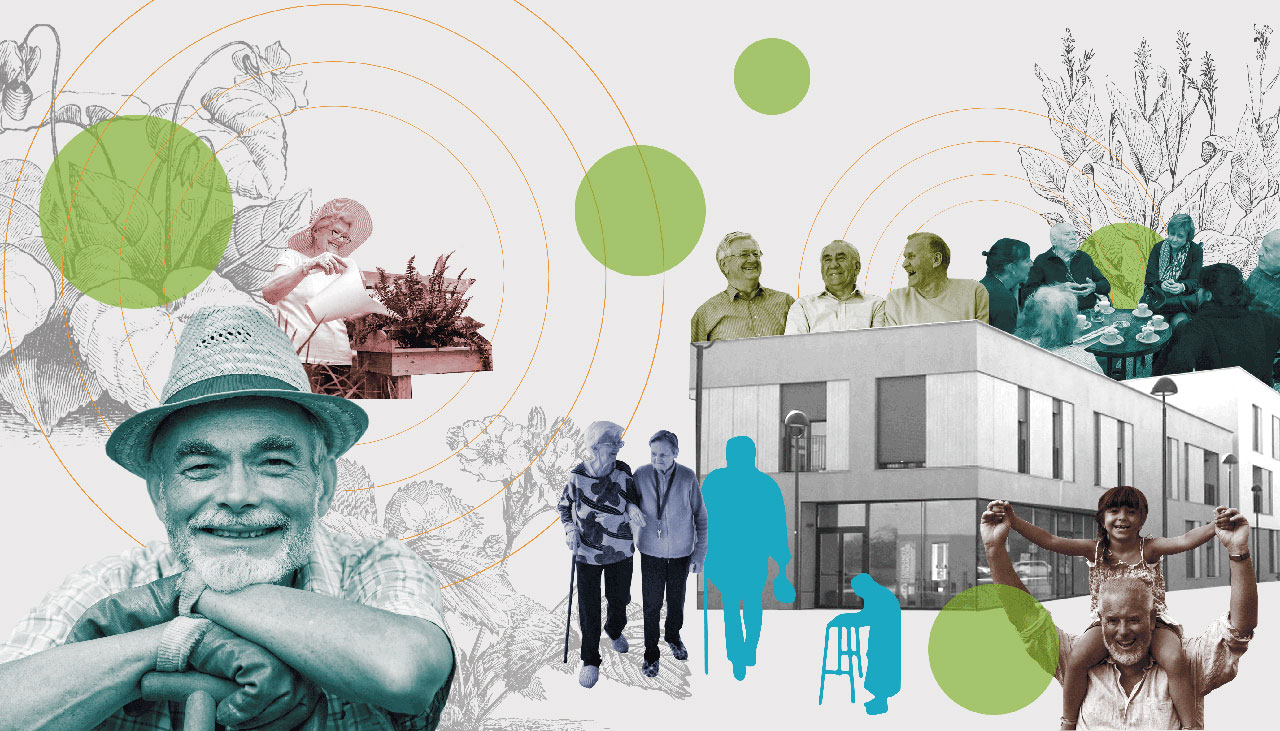
FHS has been involved in Senior Living for years through the development of new housing and service models to support active ageing. It supports third-sector agencies with the rationale of strengthening the network and takes care of the design of indoor spaces that is aimed at ensuring high levels of quality in areas of cohabitation. The Foundation also contributes to strengthening the sector by promoting debate on Senior Living, and is active in disseminating its findings through publications, conferences, and exhibitions.
FHS operates thanks to a network of collaborations with banking foundations, the main real estate SGRs, third-sector entities, and public authorities.
RESEARCH
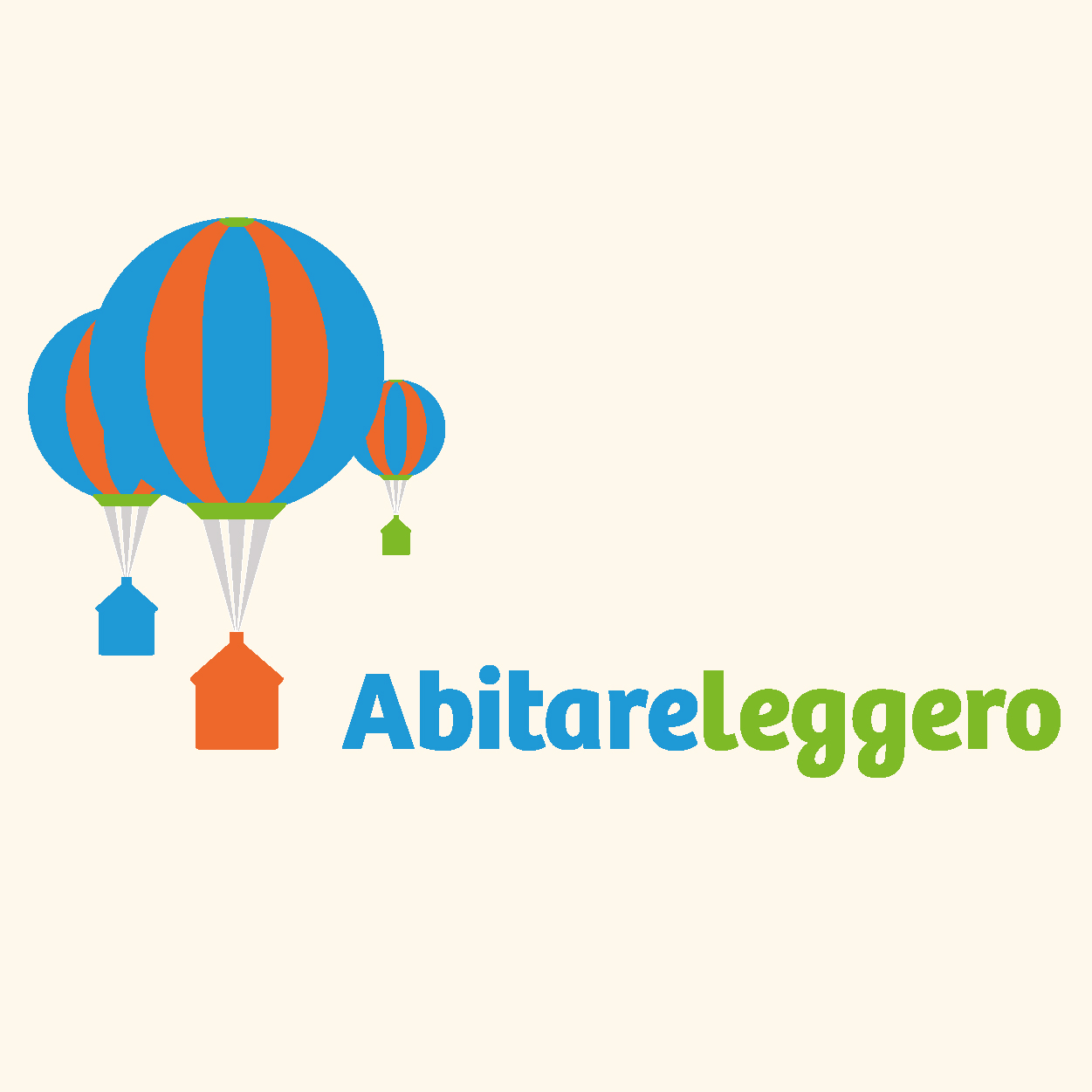
ABITARE LEGGERO (“LIGHT LIVING”) – TOWARDS A NEW GENERATION OF SERVICES FOR SENIORS
Abitare Leggero is a research project that is promoted and financed by Fondazione Cariplo, and carried out by Fondazione Housing Sociale and Cooperativa La Meridiana Due.
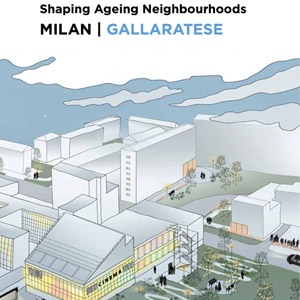
Shaping Ageing Neighbourhoods: Milan Gallaratese
Shaping Ageing Neighborhoods is a study that was carried out by Arup, Fondazione Housing Sociale, and Systematica, with the objective of identifying urban design and service strategies that are able to make neighborhoods more inclusive and make them promoters of active ageing.
THE PROJECTS
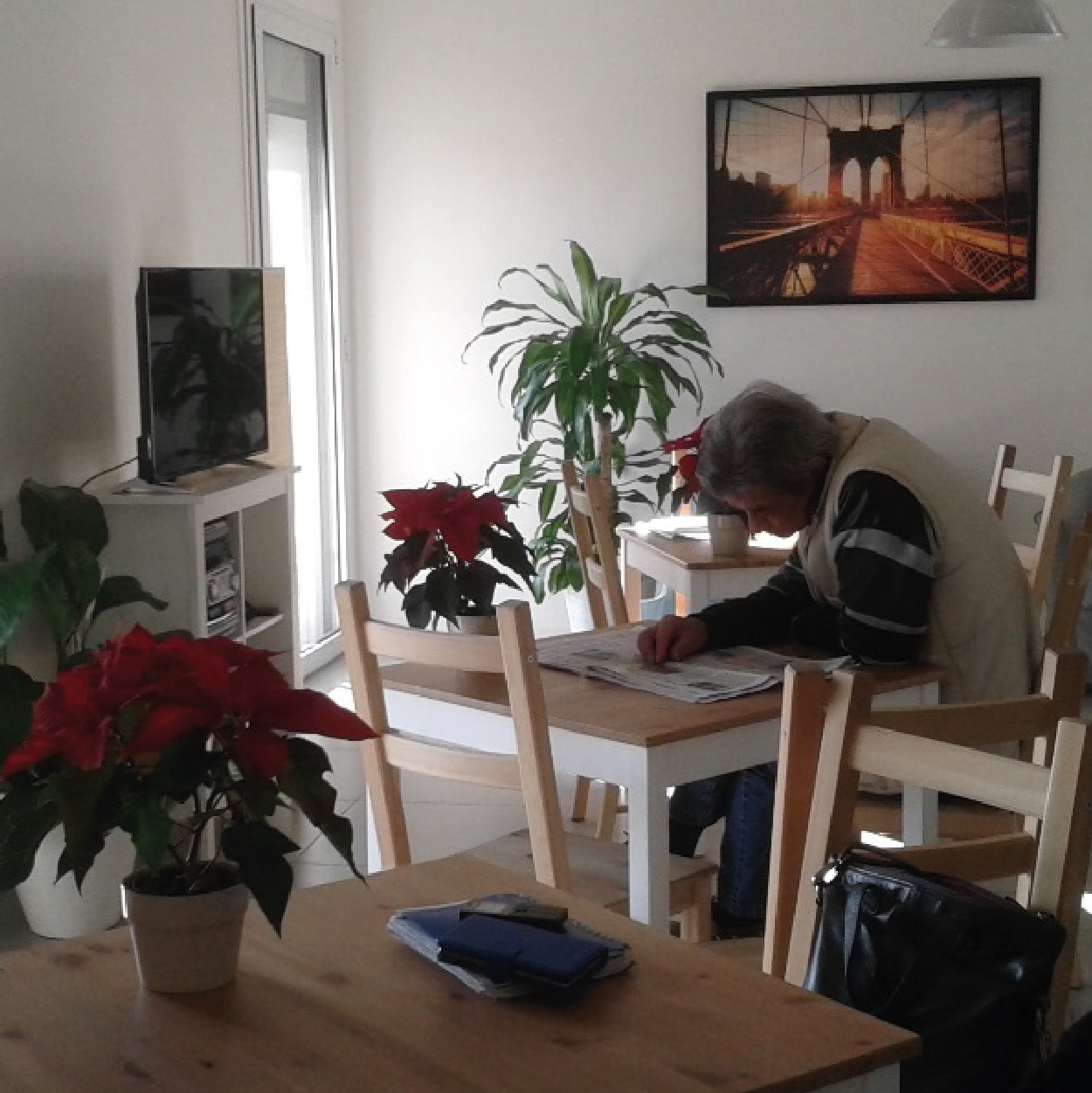
SENIOR COHOUSING
Senior Cohousing is an innovative housing service that is aimed at over-65s who find themselves facing housing emergency; it provides a sheltered environment for active ageing.
It comprises 10 studio apartments with a broad range of common areas available. The launch of this service was supported by Fondazione Cariplo, through a call for tenders addressed to third-sector entities.
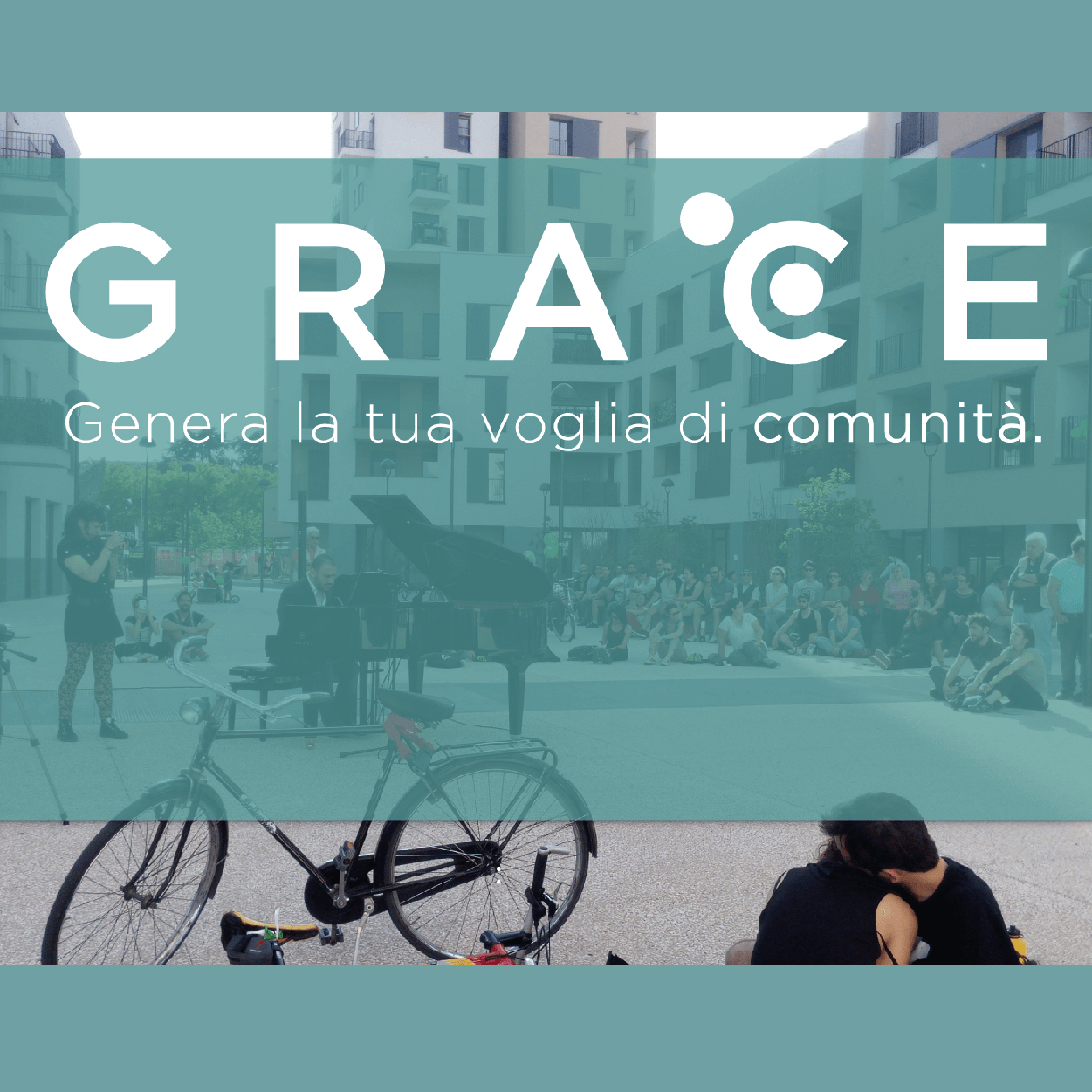
PROJECT GRACE - BORGO ASSISTITO
Grace – Borgo Assistito is a composite social-health service that consists of housing aimed at “light living” for seniors, housing for vulnerable people with different levels of autonomy, and a large shared housing space for young people, together with spaces for the development of social relations and services aimed at the local neighborhood.
DISSEMINATION AND TRAINING
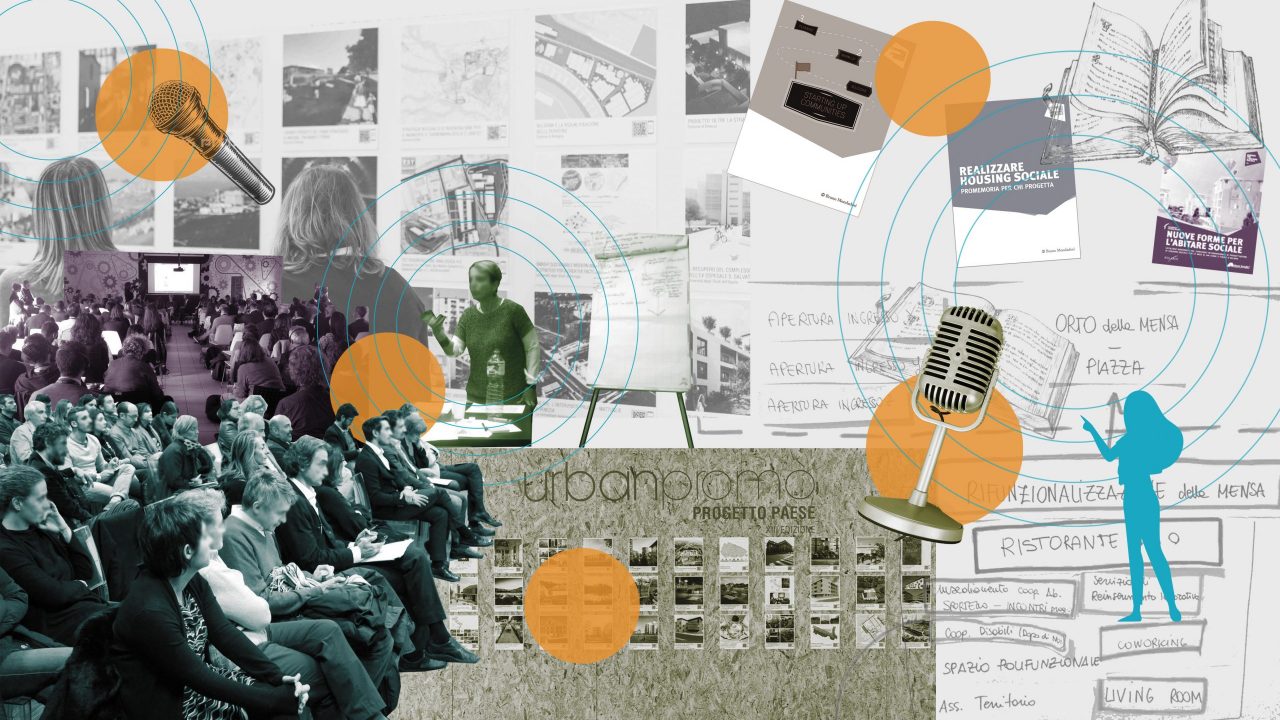
FHS is committed to promoting social housing interventions in all their different phases, at both national and international level, through the publication of manuals and the organization of and participation at conventions and conferences (Italian and European partnerships and networks), with the aim of disseminating the topic of social housing and promoting opportunities for constructive discussion. The design of promotional strategies is based on respect for the ethics and qualitative values of the housing proposal, with every aspect of communication being planned to consolidate its identity. During the process of building the community of residents in social housing initiatives (Community engagement), the residents are accompanied on their settling in journey by a series of toolkits (Tools) that have been designed specifically to promote and facilitate their involvement in the care and shared use of the common spaces.
From time to time, video tutorials are created to transmit and share the knowhow and experiences of the residents from other social housing interventions. In the Residences section, the project cards describe the main work stages.
In addition to this, FHS is active in the training and education field, and is a partner of the Masters in Social and Collaborative Housing offered by the Politecnico di Milano. It has also promoted and conducted courses dedicated to professionals in the field of social management (Tools).
Activities undertaken by FHS:
- design of the communication plan
- design and set-up of communication tools(website, leaflets and posters, roll-ups, and manuals)
- design Tools for collaborative activities (Cards, App, Stacking plan, and Platforms)
- design and production of videos.
ITALIAN AND EUROPEAN PARTNERSHIPS AND NETWORKS

Fondazione Housing Sociale is an active member of various different networks that bring together operators who work in the field of housing at both national and international levels. The Foundation participates in international events and projects promoted by the networks of Housing Europe and the European Federation for Living (EFL), and is one of the founding members of the Italian National Committee for Social Housing, which was founded in 2020 with the aim of developing transversal and synergistic operations among social housing promoters in Italy. Since 2022, Fondazione Housing Sociale has also been part of the Placemaking Europe network.
Significant Partnerships:
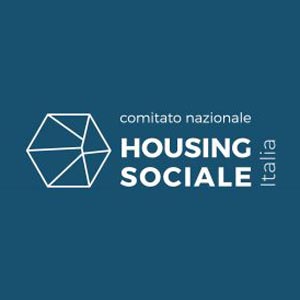
NATIONAL COMMITTEE FOR SOCIAL HOUSING
FHS is one of the founding members of the Italian National Committee for Social Housing (Comitato Nazionale per l’Housing Sociale), an aggregator that originated in 2020 with the purpose of laying the foundations for transversal and synergistic action between operators working in the field of housing, aimed at developing public-private partnership projects. The National Social Housing Committee is a partner of the New European Bauhaus initiative that was launched by the European Commission. The Committee is the result of the collaboration between Federcasa, Legacoop Abitanti, Confcooperative Habitat, Fondazione Compagnia di San Paolo, Fondazione Housing Sociale, Fondazione Sviluppo, and Crescita CRT.
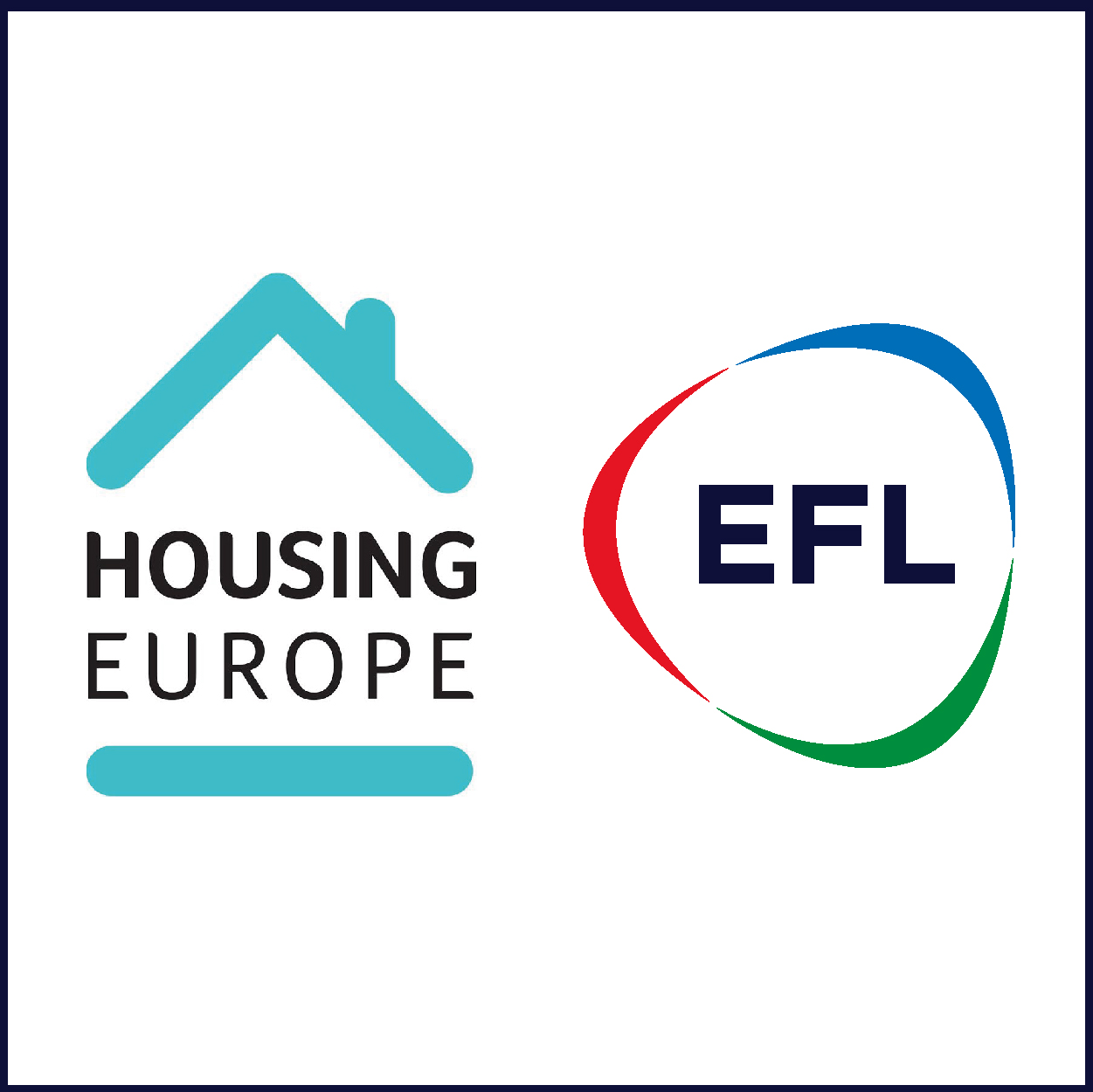
INTERNATIONAL NETWORKS: HOUSING EUROPE AND EUROPEAN FEDERATION FOR LIVING
Fondazione Housing Sociale is a member of the international networks Housing Europe and the European Federation for Living (EFL). Through these networks, FHS contributes to promoting the debate on the subject of accessible housing, including outside Italy, by participating in events, presentations, exchanges, and research projects that are developed in collaboration with operators working in the housing sector in other European countries.
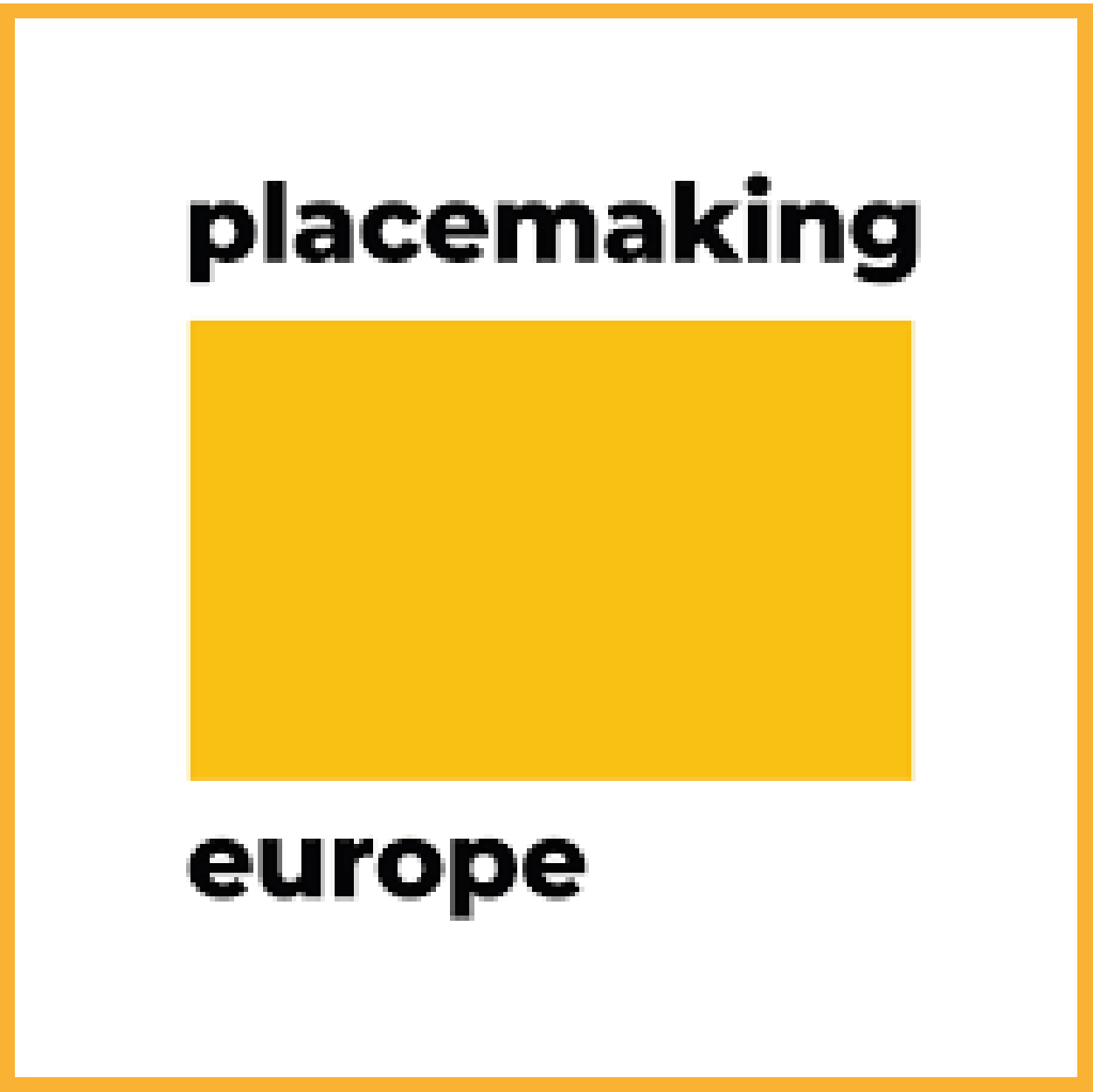
Placemaking Europe
Since 2022, Fondazione Housing Sociale has been part of the Placemaking Europe network, a non-profit foundation that connects experts, academics, community activists, entrepreneurs, and policy makers who are all active in the field of placemaking. The network contributes to the development and sharing of knowledge and knowhow, the creation and testing of tools, the exchange of ideas, and advocacy activities for the creation of policies through which public spaces can be improved. FHS is involved in Placemaking Week, the main event dedicated to placemaking at a European level, and is part of the Place-Led Development working group, which aims to bring together the principles of placemaking in urban regeneration projects, territorial development and real estate, by way of dissemination, research and exchange activities. (Placemaking / Urban regeneration).

Urbanpromo
Fondazione Housing Sociale is part of the Scientific Committee and is one of the promoters of the UrbanPromo initiative, an event that aims to increase the culture of urban, economic, social and environmental feasibility of projects to improve the quality of planning, design, and management processes. The initiative takes place each time with a program of qualified conferences with a high technical and scientific profile, such as Urbanpromo Social Housing: a specialist convention in which a vision of the system for social housing is constructed.
SOCIAL MANAGEMENT
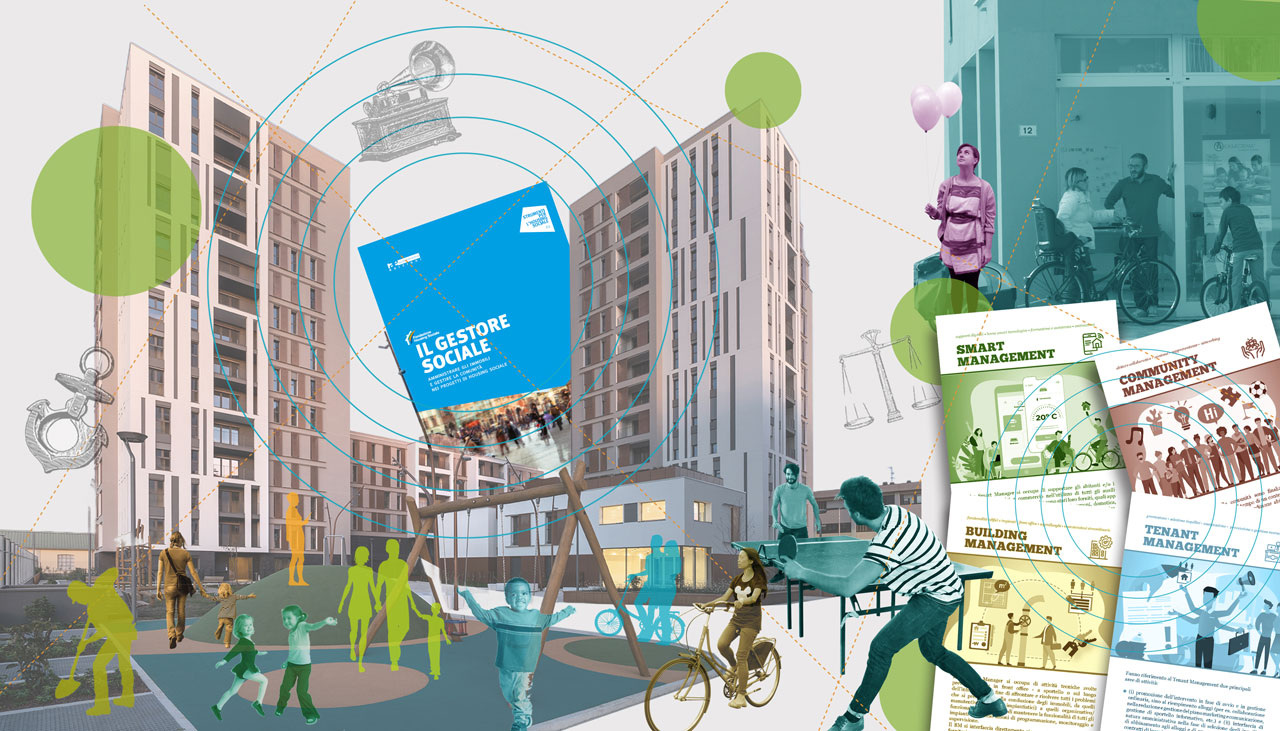
FHS has devised and developed a social management model for social housing interventions within the Integrated Fund System (SIF), which brings together a set of specialized, diversified and complementary skills in order to guide an integrated administration and management, combining technical and administrative activities relating to the management of the building with activities to manage the community of residents aimed at enhancing the relationship between and with the people who live there, and at actively involving them in taking care of and managing the common spaces used for collaborative activities.
Activities undertaken by FHS:
- scouting of interesting operators in the social management sector
- drafting of the social convention
- set up and coordination of beauty contestson behalf of the property owner, aimed at identifying and selecting the social manager and at defining the management model, through the development of context-specific procedures and tools
- training and supportof the social manager in framing and structuring the activities of the different management areas with respect to each phase of the project
- support with preliminary activities priorto the occupation of the dwellings, such as drafting the public rental notice
- scheduling and initiation of counter activities
- planning and coordination of meetings and training workshops
- support in the active monitoring of social manager operations(monitoring and social impact).
- continuous research into the implementation and development of new accessible and scalable management models.
FINANCIAL ANALYSIS AND PLANNING

The Finance team at the Foundation deals with the financial-economic analysis and structuring of Social Housing. In particular, it assists public operators (municipal authorities, former IACP and others) and private operators (banking foundations, SGRs, real-estate operators, cooperatives, associations and building contractors).
Activities undertaken by FHS:
- identification of investment initiatives
- analysis of the real-estate market and of housing needs
- assistance in defining the economic-financial aspects of projects
- development of housing mix scenarios
- support in business plan preparation
- preparation of a preliminary financial plan and estimation of investment
- preliminary assessment of the terms of financial feasibility
- financial structuringof initiatives
- financial planning to support the sustainability of the community
- support in the administrative process
- support in negotiating contractual agreementswith the parties involved
- support in negotiating implementation agreementswith the local Municipality.




